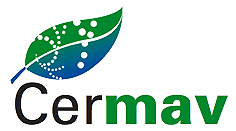Carbohydrates, like DNA and proteins, are vital molecules on earth. In particular, oligosaccharides, whether free or conjugated to proteins or lipids, are involved in many biological processes (cell signaling, immune response, infection by certain pathogens, etc.). However, their low natural abundance makes their study complex, and the development of efficient synthesis methods is essential.
The CBO team’s research aims to synthesize oligosaccharides and glycoconjugates to provide biologists with the molecular tools they need to study living processes, and to develop new products for human and animal health (drugs, diagnostics, food) and agronomy (plant protection and growth).
Drawing on its expertise in glycochemistry, biochemistry and microbiology, the CBO team develops atom-saving and environmentally-friendly processes based on biocatalysis and click chemistry.
Biocatalysis using glycoside hydrolases
Glycoside hydrolases (GHs), enzymes that catalyze the hydrolysis of the glycosidic bonds in glycans, are used to depolymerize naturally abundant polysaccharides into oligosaccharides. Under certain conditions, these enzymes can also form glycosidic bonds. This property allows the synthesis of small oligosaccharides (tri-, tetrasaccharides) from simple sugars. To access larger oligosaccharides, the hydrolytic activity of GHs must be suppressed by site-directed mutagenesis. These are known as glycosynthases.
These different approaches have been implemented to produce oligosaccharides derived from cellulose, chitin or other polysaccharides such as xyloglucan or β-1,3-glucan. In particular, glycosynthases derived from cellulases, chitinases or lysozyme have been developed. Other enzymes active on sugars (glycosyltransferases, N-deacetylases, sulfotransferases) are also used for the synthesis and selective modification of oligosaccharides.
Metabolic engineering of microorganisms
Our team has also developed a biotechnological process for the production of oligosaccharides using glycosyltransferases (GTs). GTs, which are naturally responsible for glycan biosynthesis, are difficult to use in vitro due to their poor stability and the high cost of their substrates (sugar nucleotides). In our “cell factory” process, bacterial strains of E. coli are metabolically engineered to express the enzymes required for nucleotide-sugar synthesis, as well as the GTs to produce a target oligosaccharide. This rapid and low-cost process offers the possibility of producing, on a scale of several grams per liter of culture, a wide range of natural oligosaccharides, glycomimetics and derivatives ready to be conjugated by click chemistry. This process also enables the production of polysaccharides such as glycosaminoglycans (hyaluronic acid, chondroitin, heparosan). This activity is now developed in close collaboration with CERMAV’s microbiology platform, for which the team has scientific responsibility.
Glycochemistry and Click Chemistry
Chemo- and regioselective click reactions are used to access various molecular probes (fluorescent, biotinylated, photoactivatable…) and glycoconjugates (glycopeptides, glycolipids, glycopolymers…). In addition to the highly efficient copper-catalyzed azide-alkyne cycloaddition (CuAAC), we also carry out various non-metallo-catalyzed bioorthogonal reactions (thiol-ene, Michael addition, Diels-Alder…).
Recent research contracts
- Molecular studies of plant defense mechanisms and plant-microorganism symbiotic processes (Bill Gates Foundation 2012-2017, ANR)
- Chemical probes for the identification of the lysosomal receptor LOST (FRM 2018-2022)
- Anti-adhesion therapy against influenza viruses (Labex ARCANE 2019-2022, SATT Linksium 2020)
- New tools for molecular sequencing of glycosaminoglycans (ANR GAGS-nanosensor 2021-2024)
- Study of bacterial cell-wall metabolism enzymes to combat antibiotic resistance (ANR Glyco_SWIM 2021-2024)
The CBO team (january 2025)
Permanent staff
- Sylvie Armand, Assistant Professor – UGA
- Sylvain Cottaz , Professor – UGA
- Sébastien Fort , Director of Research – CNRS (team leader)
- Stéphanie Pradeau, Assistant Engineer – CNRS
- ernard Priem , Assistant Professor – UGA
Non permanent staff
- Lisa Entzmann, PhD student
- Dindet-Steve-Evanes Koffi Teki, Assistant Professor – UGA
- Julien Kopytko, engineer
- Léa Latour, PhD student
- Elsa Lemoine, study engeneer
- Corinne Lepetit, PhD student
- Ryo Takahama, Postdoctoral researcher

